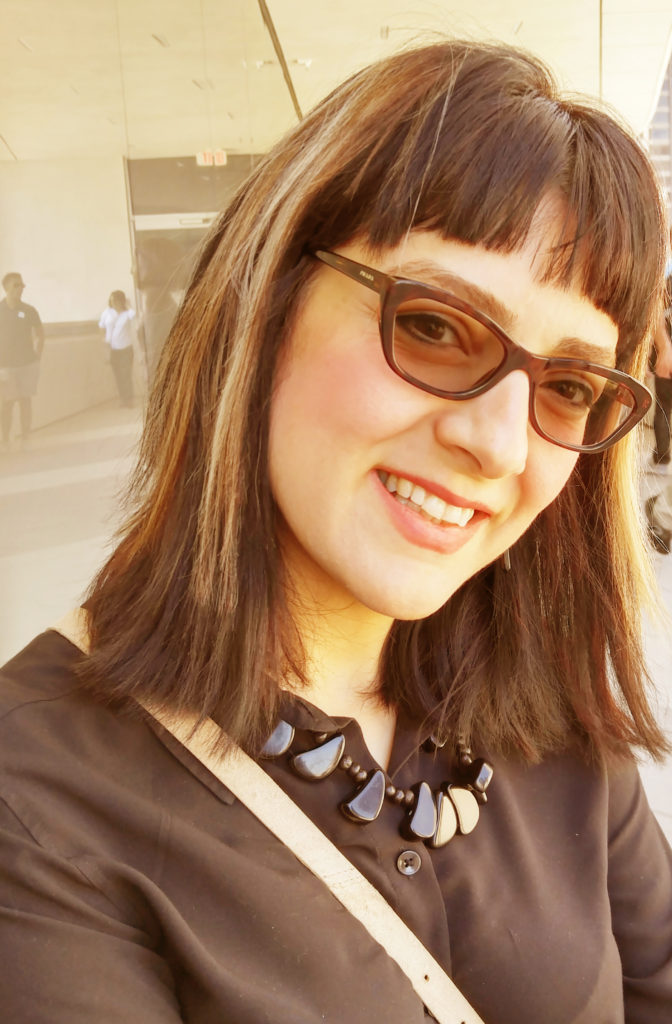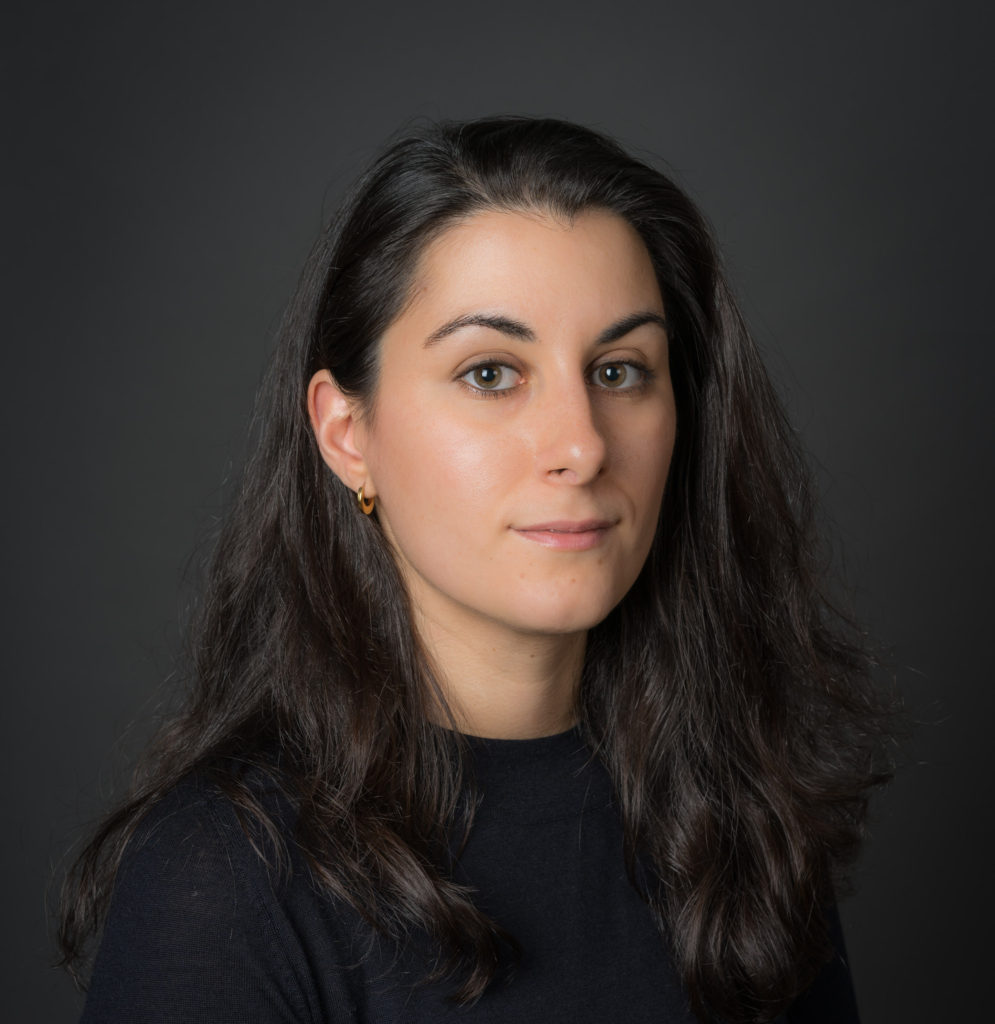Board
CURRENT AMCA BOARD MEMBERS
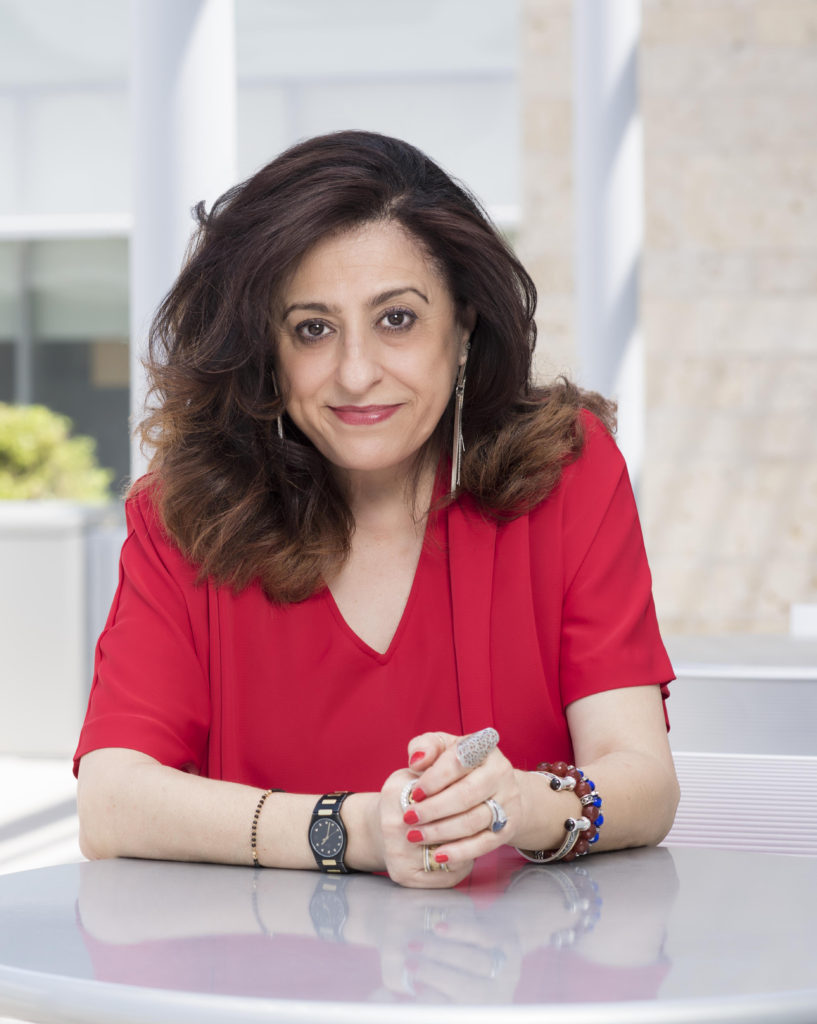 Nada Shabout is a Professor of Art History and the Director of the Contemporary Arab and Muslim Cultural Studies Initiative (CAMCSI) at the University of North Texas, USA. She is the founding president of the Association for Modern and Contemporary Art from the Arab World, Iran and Turkey (AMCA). She was the Consulting Founding Director of Research at Mathaf: Arab Museum of Modern Art, Doha, and is the editor-in-chief of the Mathaf Encyclopedia of Modern Art and the Arab World. In 2010, she led Mathaf’s curatorial team of the inaugural exhibition Sajjil: A Century of Modern Art, and curated one of the two accompanying opening exhibitions, Interventions: A dialogue between the Modern and the Contemporary. She has co-curated with Zainab Bahrani Modernism and Iraq at the Wallach Art Gallery, Columbia University, 2009, and curated the traveling exhibition, Dafatir: Contemporary Iraqi Book Art, 2005-2009. Shabout has published numerous articles on modern and contemporary Arab and Iraqi art. She is the author of Modern Arab Art: Formation of Arab Aesthetics, University of Florida Press, 2007; co-editor with Salwa Mikdadi of New Vision: Arab Art in the 21st Century, Thames & Hudson, 2009; and currently co-editing with Anneka Lenssen and Sarah Rogers the forthcoming volume Modern Art in the Arab World: Primary Documents, part of the International Program at the Museum of Modern Art, New York, 2018. She is the founder and project director of the Modern ArtIraq Archive (MAIA); a former member of the editorial committee of the Middle East Research and Information Project (MERIP) and member of the International Editorial Advisory Board and subject editor for the Routledge Encyclopedia of Modernism (REM). Her awards include: Writers Grant, Andy Warhol Foundation 2018; The Presidential Excellency Award, UNT 2018; The American Academic Research Institute in Iraq (TAARII) fellow 2006, 2007; MIT visiting Assistant Professor, spring 2008, and Fulbright Senior Scholar Program, 2008 Lecture/Research fellowship to Jordan.
Nada Shabout is a Professor of Art History and the Director of the Contemporary Arab and Muslim Cultural Studies Initiative (CAMCSI) at the University of North Texas, USA. She is the founding president of the Association for Modern and Contemporary Art from the Arab World, Iran and Turkey (AMCA). She was the Consulting Founding Director of Research at Mathaf: Arab Museum of Modern Art, Doha, and is the editor-in-chief of the Mathaf Encyclopedia of Modern Art and the Arab World. In 2010, she led Mathaf’s curatorial team of the inaugural exhibition Sajjil: A Century of Modern Art, and curated one of the two accompanying opening exhibitions, Interventions: A dialogue between the Modern and the Contemporary. She has co-curated with Zainab Bahrani Modernism and Iraq at the Wallach Art Gallery, Columbia University, 2009, and curated the traveling exhibition, Dafatir: Contemporary Iraqi Book Art, 2005-2009. Shabout has published numerous articles on modern and contemporary Arab and Iraqi art. She is the author of Modern Arab Art: Formation of Arab Aesthetics, University of Florida Press, 2007; co-editor with Salwa Mikdadi of New Vision: Arab Art in the 21st Century, Thames & Hudson, 2009; and currently co-editing with Anneka Lenssen and Sarah Rogers the forthcoming volume Modern Art in the Arab World: Primary Documents, part of the International Program at the Museum of Modern Art, New York, 2018. She is the founder and project director of the Modern ArtIraq Archive (MAIA); a former member of the editorial committee of the Middle East Research and Information Project (MERIP) and member of the International Editorial Advisory Board and subject editor for the Routledge Encyclopedia of Modernism (REM). Her awards include: Writers Grant, Andy Warhol Foundation 2018; The Presidential Excellency Award, UNT 2018; The American Academic Research Institute in Iraq (TAARII) fellow 2006, 2007; MIT visiting Assistant Professor, spring 2008, and Fulbright Senior Scholar Program, 2008 Lecture/Research fellowship to Jordan.
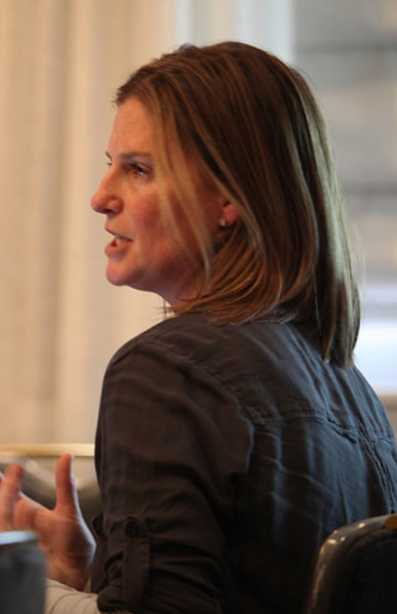 Sarah Rogers is an independent scholar whose work focuses on modern and contemporary art of the Arab world. She earned a Ph.D. from the History, Theory, and Criticism section of the Department of Architecture at the Massachusetts Institute of Technology. She has held fellowships at Southern Methodist University, Smithsonian Museum of American Art, Palestinian American Research Center, and Columbia University Global Centers-Amman, Jordan. Her writings on modern and contemporary Arab art have been published in Art Journal, American Art Review, and Arab Studies Journal, among others. She is co-editor of Modern Arab Art: Primary Documents (forthcoming, Museum of Modern Art) and Arab Art Histories: The Khalid Shoman Collection (2014). She is currently at work on a book, Drawing Artistic and Political Alliances in Cold War Beirut. She is a founding member and President- Elect of the Association of Modern and Contemporary Art of the Arab World, Iran, and Turkey (AMCA).
Sarah Rogers is an independent scholar whose work focuses on modern and contemporary art of the Arab world. She earned a Ph.D. from the History, Theory, and Criticism section of the Department of Architecture at the Massachusetts Institute of Technology. She has held fellowships at Southern Methodist University, Smithsonian Museum of American Art, Palestinian American Research Center, and Columbia University Global Centers-Amman, Jordan. Her writings on modern and contemporary Arab art have been published in Art Journal, American Art Review, and Arab Studies Journal, among others. She is co-editor of Modern Arab Art: Primary Documents (forthcoming, Museum of Modern Art) and Arab Art Histories: The Khalid Shoman Collection (2014). She is currently at work on a book, Drawing Artistic and Political Alliances in Cold War Beirut. She is a founding member and President- Elect of the Association of Modern and Contemporary Art of the Arab World, Iran, and Turkey (AMCA).
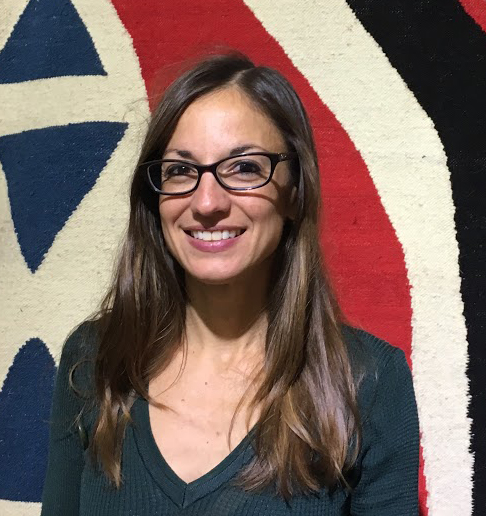 Jessica Gerschultz is an Assistant Professor in the Department of African and African-American Studies at the University of Kansas. She received her PhD in Art History in 2012 from Emory University. Her research centers on African and Arab articulations of modernism with an emphasis on tapestry. Jessica is a 2018 Hans-Robert Roemer Fellow at the Orient-Institut Beirut. She was an American Council of Learned Societies (ACLS) Fellow in 2016 for the writing of her first book on Tunisian modernism (Penn State Press, forthcoming). She has published articles in ARTMargins (2016), The International Journal of Islamic Architecture (2015), and Critical Interventions: Journal of African Art History and Visual Culture (2014), as well as contributed to African Art and Agency in the Workshop (University of Indiana Press, 2013). Jessica serves as AMCA’s Secretary and H-AMCA Reviews Editor.
Jessica Gerschultz is an Assistant Professor in the Department of African and African-American Studies at the University of Kansas. She received her PhD in Art History in 2012 from Emory University. Her research centers on African and Arab articulations of modernism with an emphasis on tapestry. Jessica is a 2018 Hans-Robert Roemer Fellow at the Orient-Institut Beirut. She was an American Council of Learned Societies (ACLS) Fellow in 2016 for the writing of her first book on Tunisian modernism (Penn State Press, forthcoming). She has published articles in ARTMargins (2016), The International Journal of Islamic Architecture (2015), and Critical Interventions: Journal of African Art History and Visual Culture (2014), as well as contributed to African Art and Agency in the Workshop (University of Indiana Press, 2013). Jessica serves as AMCA’s Secretary and H-AMCA Reviews Editor.
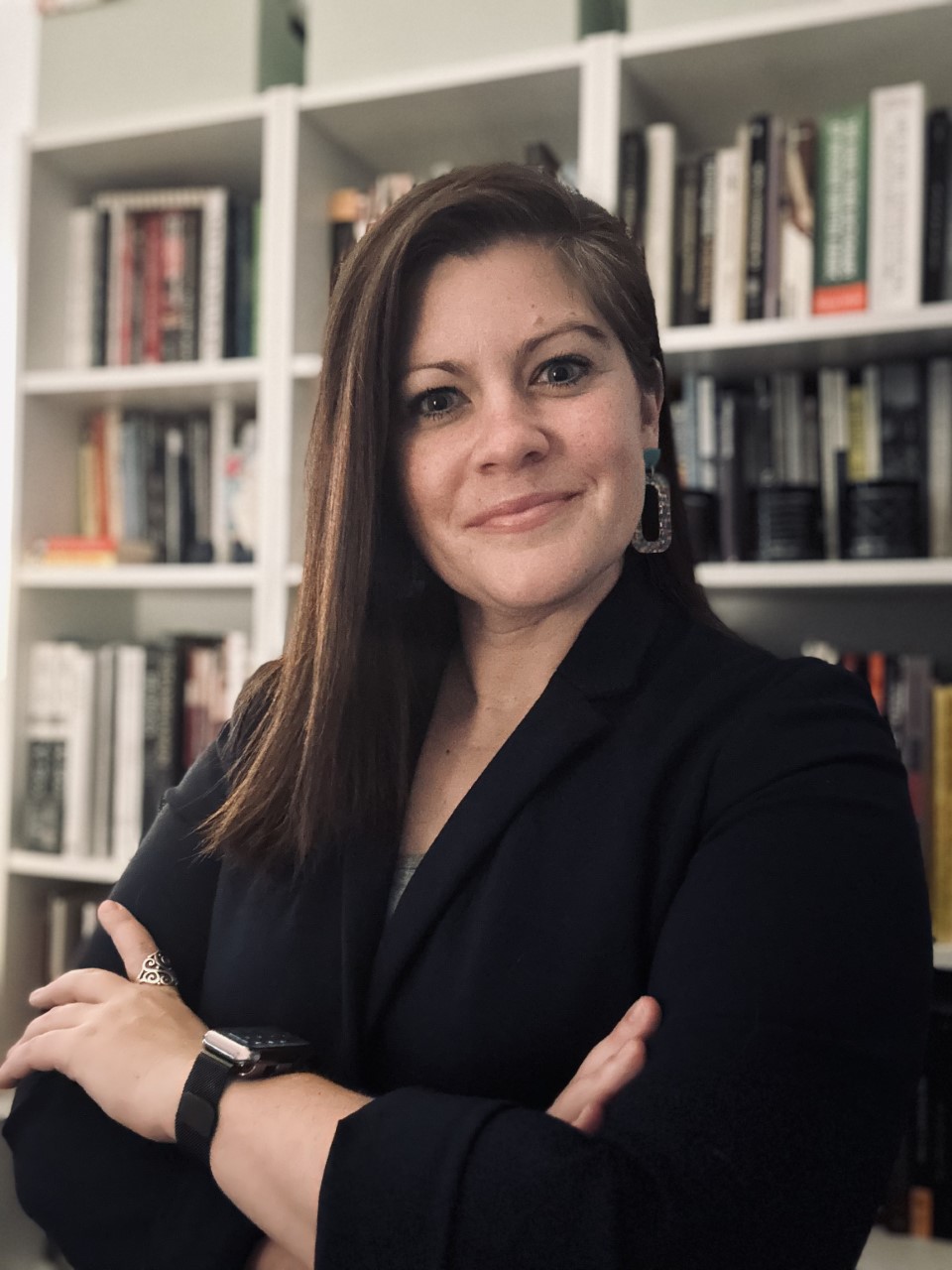 Tiffany Floyd is currently a lecturer of Modern and Contemporary Art at the University of North Texas (Denton, Texas). She received her PhD in Art History from Columbia University with a dissertation centered on understanding the relationship between Iraqi modern art and the country’s rich antique past. Her dissertation was a co-winner of the 2022 Middle Eastern Studies Malcolm H. Kerr Dissertation Award. Tiffany’s research interests include the politics of archaeology and time, petromodernity, postcolonial theory, modes of affective reception and the destruction/preservation of Iraq’s cultural heritage. She has participated in several field projects, including the Modern Art Iraq Archive (2010-2011) and the Getty-funded Mapping Art Histories in the Arab World, Iran, and Turkey (2020-2023). Her forthcoming publication, entitled Absence and Ruin in Hanaa Malallah’s The God Marduk, is an object biography that contextualizes Iraqi artist Hanaa Malallah’s art book The God Marduk (2008).
Tiffany Floyd is currently a lecturer of Modern and Contemporary Art at the University of North Texas (Denton, Texas). She received her PhD in Art History from Columbia University with a dissertation centered on understanding the relationship between Iraqi modern art and the country’s rich antique past. Her dissertation was a co-winner of the 2022 Middle Eastern Studies Malcolm H. Kerr Dissertation Award. Tiffany’s research interests include the politics of archaeology and time, petromodernity, postcolonial theory, modes of affective reception and the destruction/preservation of Iraq’s cultural heritage. She has participated in several field projects, including the Modern Art Iraq Archive (2010-2011) and the Getty-funded Mapping Art Histories in the Arab World, Iran, and Turkey (2020-2023). Her forthcoming publication, entitled Absence and Ruin in Hanaa Malallah’s The God Marduk, is an object biography that contextualizes Iraqi artist Hanaa Malallah’s art book The God Marduk (2008).
CURRENT AMCA MANAGERIAL TEAM
Nisa Ari is a PhD Candidate in the History, Theory, and Criticism of Art at MIT. Her dissertation, “Parity and Disparity: Cultural Politics and the Formation of Palestinian Art,” investigates how the tumultuous political forces impacting Palestine from the final decades of the Ottoman Empire to the nakba (1876-1948) played a determining role in the formation of the field of Palestinian art and its institutions for production and display. Her writing is published in Third Text, Arab Studies Journal, and Thresholds. Her research has been supported by fellowships from the Palestinian American Research Center, Darat al Funun, and the Terra Foundation for American Art. Nisa received a B.A. with honors in art history from Stanford University and was the Associate Director of the Studio Program at the Elizabeth Foundation for the Arts in New York before starting her doctoral degree. Nisa Ari serves as an editor for H-AMCA Reviews.
Sarah Dwider is an independent researcher and curator currently based in Alexandria, Egypt. She received her MA in art history from the University of North Texas in 2015, where she completed a thesis on social realism in Egyptian art from the 1950s and 60s. Her research interests include the intersection of art and diplomacy in postcolonial Egypt and the role of modern artists from the Middle East within transnational networks of artistic exchange. (Photo: Kristopher McKay). Sarah Dwider serves as an editor for H-AMCA Reviews.
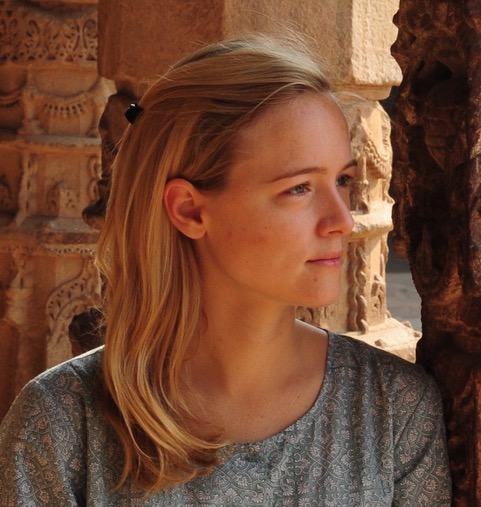 Sarah C. Johnson is a doctoral candidate at the Freie Universität in Berlin, where she is completing a dissertation on the Iraqi modern artist Hafidh al-Droubi (1914-1991). Previously, she was a curator of Islamic Collections at the British Museum in London and a researcher at the Freer and Sackler Galleries in Washington, DC. She completed her master’s degree in Islamic art and archaeology at the University of Oxford in 2014 and her undergraduate degree in art and archaeology at Princeton University in 2010. Sarah Johnson is H-AMCA Network Editor.
Sarah C. Johnson is a doctoral candidate at the Freie Universität in Berlin, where she is completing a dissertation on the Iraqi modern artist Hafidh al-Droubi (1914-1991). Previously, she was a curator of Islamic Collections at the British Museum in London and a researcher at the Freer and Sackler Galleries in Washington, DC. She completed her master’s degree in Islamic art and archaeology at the University of Oxford in 2014 and her undergraduate degree in art and archaeology at Princeton University in 2010. Sarah Johnson is H-AMCA Network Editor.
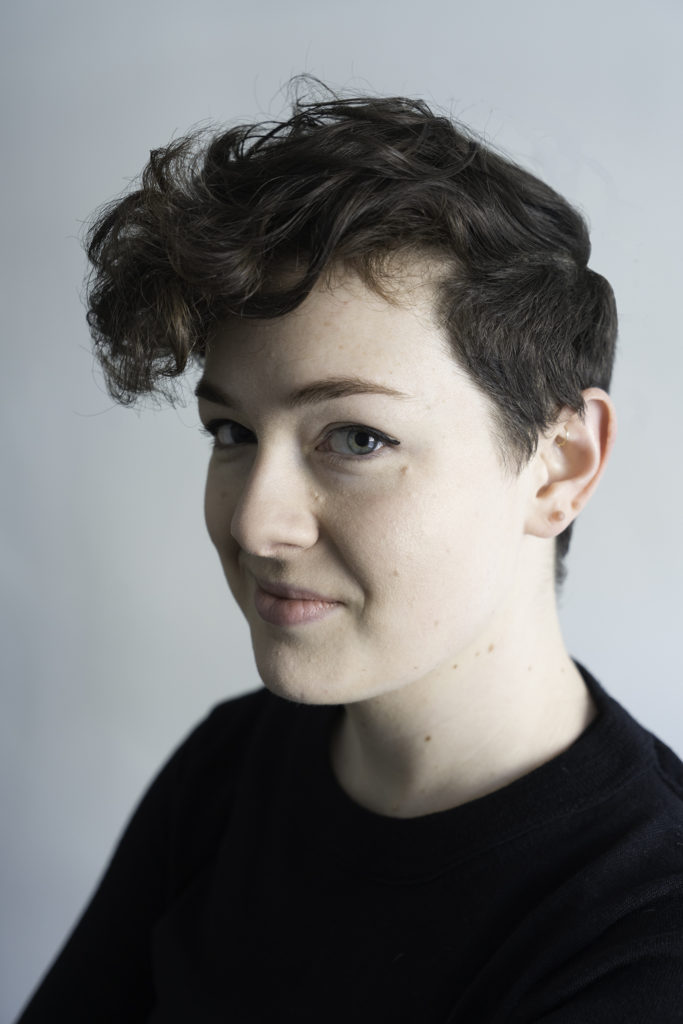 Alessandra Amin is a Ph.D. candidate in the department of art history at UCLA. Her dissertation project explores art in the orbit of the Palestinian Liberation Organization during the 1960s and 1970s. Alessandra Amin serves as an editor for H-AMCA Reviews.
Alessandra Amin is a Ph.D. candidate in the department of art history at UCLA. Her dissertation project explores art in the orbit of the Palestinian Liberation Organization during the 1960s and 1970s. Alessandra Amin serves as an editor for H-AMCA Reviews.
 Elizabeth Rauh is a Visiting Assistant Professor in the Art History Department at the University of Illinois at Chicago, specializing in modern and contemporary art and visual cultures of the Middle East. She received her PhD in 2019 from the University of Michigan for her dissertation examining several prominent artists who engaged with the politics of Islamic heritage in mid-century Iran and the Arab East. Along with research in transnational modernism, she also studies early modern Persianate book arts, Shi‘i Muslim visual cultures, and issues of image making across different eras in Islamic art history.
Elizabeth Rauh is a Visiting Assistant Professor in the Art History Department at the University of Illinois at Chicago, specializing in modern and contemporary art and visual cultures of the Middle East. She received her PhD in 2019 from the University of Michigan for her dissertation examining several prominent artists who engaged with the politics of Islamic heritage in mid-century Iran and the Arab East. Along with research in transnational modernism, she also studies early modern Persianate book arts, Shi‘i Muslim visual cultures, and issues of image making across different eras in Islamic art history.
Former Board Members
Alexandra Dika Seggerman, Secretary
Alex Dika Seggerman is the Five College Mellon Postdoctoral Fellow of Islamic Art at Smith College. She received her Ph.D. in the History of Art from Yale University in 2014. Her dissertation, “Revolution and Renaissance in Modern Egyptian Art, 1880-1960” was supported by a U.S. Department of State ECA fellowship at the American Research Center in Egypt.
Patrick Kane, Treasurer
Patrick Kane is Instructor of General Education at Sharjah Women’s College, Sharjah Higher Colleges of Technology in the United Arab Emirates. He received his Ph.D. in Philosophy, Interpretation and Culture from the State University of New York at Binghamton. He is author of The Politics of Art in Modern Egypt: Aesthetics, Ideology, and Nation-building (IB Tauris, 2013)
Salwa Mikdadi, Founding Board Member (and previously President-elect)
Salwa Mikdadi is Associate Professor of Practice of Art History at NYU Abu Dhabi.
Her teaching and research interests are in gender and politics in art of the Arab World, Arab art institutions, and museums and society. She is the author and co-editor of several publications, among them- Cities and Legends: Elias Zayat; New Visions: Arab Contemporary Art of the 21st Century (co-editor); curated and edit catalogs for Palestine c/o Venice (the first Palestinian Pavilion in Venice); In/Visible: American Artists; Rhythm and Form: Visual Reflections on Arabic Poetry and Forces of Change: Artists of the Arab World.
Dina Ramadan, Founding Board Member (and previously Secretary)
Dina A Ramadan is Assistant Professor of Arabic at Bard College. Her research is concerned with the development of the category of modern art and the relationship between education and artistic production in early 20th century Egypt. She is a senior editor of Arab Studies Journal and the guest editor of the Spring 2010 themed issued on the visual arts. She been published in Art Journal, Arab Studies Journal and the MESA Bulletin.
Silvia Naef, Founding Board Member
Silvia Naef is a professor at the University of Geneva in the Arabic Studies Unit. From 2007–2009 she is a visiting professor at the University of Toronto where she is teaching modern visual arts of the Middle East. Naef has previously taught at the universities of Basel (Switzerland) and Tübingen (Germany). She is the author of A la recherche d’une modernité arabe, L’évolution des arts plastiques en Egypte, au Liban et en Irak (Slatkine, 1996).
http://www.unige.ch/lettres/meslo/arabe/enseignants/naef.html
Beral Madra, Founding Board Member
Beral Madra is a curator, art critic, and director of the BM Contemporary Art Center in Istanbul. She has been the curator of the 1st and 2nd Istanbul Biennale (1987-89) and until 2005 served as the curator of the Turkish Pavilions at the Venice Biennials. She will curate the Azerbaijan pavilion for the 54th Venice Biennale (2011). She has also taught Curatorial Management in the Faculty of Art and Design of Yildiz Technical University (2000-2004). In addition to Turkish contemporary art, Madra’s interests include the inter-regional artistic collaboration between South Caucasus, Middle East and Central Asia.
http://www.pluversum.blogspot.com
http://www.supremepolicy.blogspot.com
http://www.flickr.com/photos/pluversum
Shiva Balaghi, Founding Board Member
Shiva Balaghi is a cultural historian of the Middle East. She teaches Art History and History at Brown University as the Laya Khadjavi Visiting Assistant Professor of Iranian Studies. Balaghi is a Contributing Editor of Jadaliyya, Associate Editor of Review of Middle East Studies, and Vice-President of the American Institute of Iranian Studies. Her books include Saddam Hussein: A Biography (2005); Picturing Iran: Art, Society, and Revolution (co-edited, 2002); and Reconstructing Gender in the Middle East (Co-edited, 1994). Balaghi has published widely on Iranian visual culture and contemporary Islamic Art and is currently completing the book Knowledge and Power in Iran, 1848-1953.
Nasser Rabbat, Honorary Board Advisor
Nasser Rabbat is the Aga Khan Professor of Islamic Architecture at the Massachusetts Institute of Technology (MIT). His scholarly interests include the history and historiography of Islamic art and architecture, urban history, and post-colonial criticism. Beside publishing articles in specialized scholarly journals and edited collections, Professor Rabbat regularly contributes to a number of Arabic newspapers and journals, such as al-Hayat, al-Adab, andWughat Nazar on art, architectural, and critical and cultural issues.
Rhonda Saad, AMCA’s First Treasurer
Rhonda Saad was a Ph.D. Candidate in the Department of Art History at Northwestern University, where she was working on her dissertation entitled, “Impossible Exhibitions: Palestinian Art and the Public Parameters of a Transnational Imaginary, 1923-1982.” She received a master’s degree from Tufts University, where she focused on contemporary Palestinian art, and an undergraduate degree from the University of Virginia. In 2010, Rhonda tragically lost her life in an accident in Istanbul. To honor her life and work, AMCA established the Rhonda A. Saad Prize for Best Graduate Paper in Arab Art.
Anneka Lenssen, Former Treasurer
Anneka Lenssen is an Assistant Professor in the Visual Cultures Program of the Department of Arts at The American University in Cairo. She is finishing her Ph.D. in History, Theory, and Criticism of Art and Architecture and the Aga Khan Program for Islamic Architecture at M.I.T. with a dissertation entitled, “The Shape of the Support: Painting in Syria’s Twentieth Century.”
